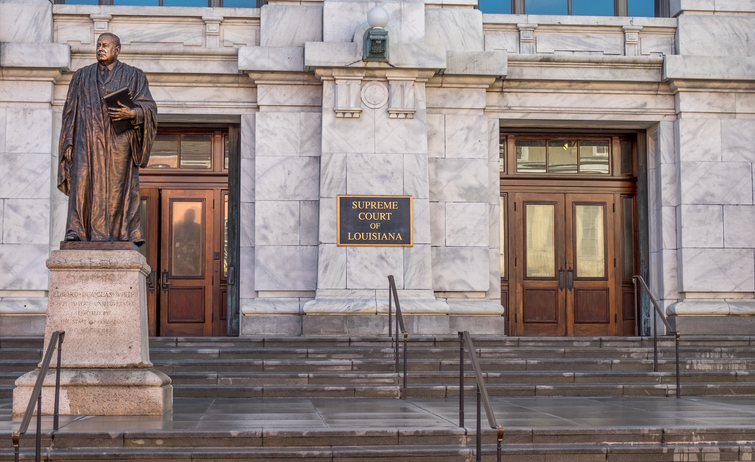
July 2, 2025
The case would have determined whether one of the state’s two majority-Black congressional districts was a racial gerrymander.
The U.S. Supreme Court has ordered further argument in what is considered a high-stakes redistricting case in Louisiana. The court delayed its decision in Louisiana v. Callais, a case that would have determined whether one of the state’s two majority-Black congressional districts was a racial gerrymander.
The punt on the case has created uncertainty in the battle for the House. As Politico explains, one Democratic-held House seat is in limbo as Republicans look to defend their thin majority in the next election.
Racial Gerrymander: What Led To This?
The legal battle began with Robinson v. Landry (originally Robinson v. Ardoin). The NAACP Louisiana State Conference, along with the Power Coalition for Equity and Justice and nine Black voters, successfully challenged the state’s 2022 congressional map.
According to the Vanguard News Group, the map drawn by the state legislature following the 2020 Census Bureau was found to violate Section 2 of the Voting Rights Act. This was after the state’s governing body drew a congressional map that packed Black voters into one majority-Black district out of six total districts statewide. One district for Black voters meant their voting power would be diluted elsewhere in the state. The Fifth Circuit Court agreed. The state legislature passed SB8 in 2024 with two majority-Black districts.
However, SB8 came under fire in a separate lawsuit, Callais v. Landry. A group of self-identified “non-African American” voters sued the state for what they alleged to be unconstitutional racial gerrymandering. The group argues that since race was the predominant factor in drawing the new district lines, the state violated the constitutional rights of non-Black voters by drawing up districts based on race.
What Happens With The Supreme Court Now?
The future of Black political representation in the state is at the mercy of the Supreme Court. The highest court said the case will be reargued, likely in the fall after the court’s summer recess.
A decision is unlikely to come in 2026, which could cause confusion ahead of the midterms. Louisiana’s primaries are scheduled for April.
Justice Clarence Thomas issued a sharply worded dissent and accused the Court of “punting without explanation.” He warned that delays deepen confusion over the balance between the Voting Rights Act and the Constitution’s Equal Protection Clause.
RELATED CONTENT: Louisiana’s Public School Ten Commandment Law Struck Down In Appellate Court

